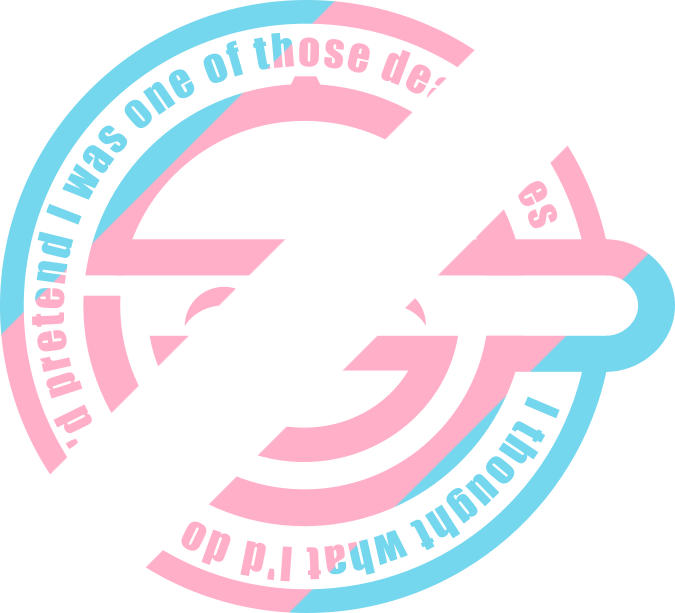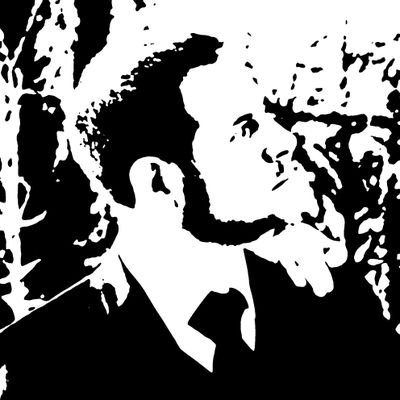pretty sure theres more than 4.

I identify as degenerate matter.
Degenerate lives matter
“Strange matter” 🤔
“Time Crystal”
In condensed matter physics, a time crystal is a quantum system of particles whose lowest-energy state is one in which the particles are in repetitive motion. The system cannot lose energy to the environment and come to rest because it is already in its quantum ground state. Because of this, the motion of the particles does not really represent kinetic energy like other motion; it has “motion without energy”.
Physics girl did a great video on this.
“Programmable Matter” tf
deleted by creator
Honestly fine with it as long as any profits aren’t privatized.
Good. Maybe we can kill religion with enough physics.
Theorized form of matter that could exist in the cores of neutron stars.
Essentially matter compressed beyond a critical point where protons and neutrons break down and dissociate into quarks.
If this quark matter contains strange quarks, then it is called strange matter.
Stranger Things
Glass 🙂
Superglass 😎
🦸♂️ glass
Well first of all, fuck you smartass.
But also yes, you’re right
I wouldn’t even try to defend OP, but I once heard someone say that if you have more than four apples, then it is also definitely true that you have four apples.
That’s true in a very literal sense, but there’s a whole branch of linguistics called pragmatics that’s concerned with things like why it’s usually safe to conclude that when someone says they have four apples, they mean that have only four apples. When there’s any ambiguity I talk like a mathematician and use phrases like “at least four apples” or “exactly four apples”.
It’s technically correct, like saying at least 4 people died from covid.
More specifically: “4 people died from covid” is also true
On the other hand, adding a single world like “only” in there suddenly makes it completely false. Language is fun.
OP treating his statement as a correction requires that he’s not using this interpretation. If he were to use this defense, so could the teacher, so he’d just be changing how he’s wrong, not that he is.
What if there’s a worm in one of them?
Like, you think you habe more than four apples.
Then you find out that most of them have worms.
In the end, you are left with two apples.
So now, it is not true that you have four apples.
As a teacher, this type of response is a great jumping off point for the discussion of curriculum vs truth, what is the extent of reality vs what is going to be on the assignment / exam etc.
It’s also a great way to stick it to the know-it-all who is trying to undermine my credibility, and has the added bonus of perking up the rest of the class.
If you can actually have a reasoned discussion about it, instead of simply getting angry at being questioned, then you are better than 90% of teachers.
In my experience most teachers don’t like being questioned, which of course is directly antithetical to their supposed vocation.
For me it matters how the question is asked. I love getting questions beyond the scope of the curriculum as it varies up my classes from year to year. However, “Actually there are 4” as in the meme is disrespectful, challenging and undermining. “I heard something about a fourth state of matter, what’s up with that?” is a prompt to reasoned discussion.
Sounds like you just don’t want your authority to be challenged.
If you’re wrong and a student points that out, own it. Instead you expect them to question their own knowledge while submitting to your authority for confirmation or denial. But if the student already knows, they don’t need your confirmation. They need you to admit that you were incorrect, and move forward with the correct information. Otherwise you’re just demonstrating that you’re an authority that cannot be trusted to be fair.
Authority that cannot be challenged is authority that cannot be respected. Authority must continually earn the respect of its constituents, or it will lose its power over them.
Oh I’ll admit I’m wrong either way, but yes I do not like my authority to be challenged. It makes the class significantly harder to manage when students feel like it’s OK to dunk on me at any opportunity and provides a bad environment for learning. My preference would be respect, but I will settle for being treated with respect. If a student won’t offer it to me with their questions, then I won’t offer it to them with my response. But I will always admit they are correct (if they are).
Authority that cannot be challenged is authority that cannot be respected. Authority must continually earn the respect of its constituents, or it will lose its power over them.
I sort of agree with this. In a classroom, you can challenge me, my knowledge, my abilities. I like to think I earn the respect of my students with all of these, as well as my compassion, my fairness, my humour.
The reality is that I am an authority however. I wrote the assignments and the exam and I mark them too, and I do it all in accordance with the state-mandated curriculum. If they “know” something because they read about it elsewhere, I should be treated as a equally valid source of information because I am. I know the curriculum inside and out. They dont “need me to admit that I was incorrect, and move forward with the correct information”, they need me to tell them why the thing they “know” is not the thing I’m teaching them. I offer that I was incorrect out of humility, not necessity.
If they “know” something because they read about it elsewhere, I should be treated as a equally valid source of information because I am.
But you’ve just proven yourself to not be an equally valid source of information because you spread misinformation.
I disagree. Telling the students there are three states of matter is just wrong and they have all the right to point it out. They keep that information for decades if not corrected/challenged and will give non true statements to others, their children, etc.
What the teacher instead should have said could may be: “There are many states of matter, currently we know of (amount). The most common however are these three: solid, liquid and gas. Maybe you will encounter a fourth: plasma. The others form in very specific situations that are very outside of our everyday life. You can look them up if you want to know more. But for this class, we only focus on the three most common.”
Everything is correct, everything is clear. The scope has been set. Teacher still looks knowlegdeable and reliable. And most importantly: does not lie, tell false facts, he provides options for individual interests and builds trust and does not offer himself for attacks on his position by misusing the trust of the students by telling them factually false content.
Relying on groveling students is morally very bad as that’s no relationship based on trust and respect for the pupils and can easily be challenged, like in this example. You would only be offering yourself for failure and risk your “dethroning”, which is a bad foundation to build on from the beginning.
Depending on class structure another way could be to include the students and have the whole class collect the states of matter they know of. That way the “plasma” ones could shine and get heard. That way you will probably get to the common 4 but maaaybe someone heard of the BE condensat, which would be extremely cool and impressive. Wrap it up with “Great work everyone! Actually, we currently know of (amount) different states, insane, right? For this class we will focus ourselves on…” That gives bonus points for teamplay and class strengthening.
solid, fluid, gaseous
Solid, liquid, and gas. A fluid is something that flows. Both liquids and gasses are fluids.
thanks, fixed.
This is the ‘senses’ argument, or the ‘moons of Jupiter’ argument.
I identify as degenerate matter
Edit: Whoops, someone already commented that elsewhere in the thread. Oh well.
Thanks to Lemmy’s Hot algorithm though, we see your joke first!
It’s only a matter of opinion.
There is that ice that turns all other water into ice!
I mean, all ice turns “other water” into ice, as long as it’s cold enough
Holy butt munch Batman! Why are we taught lies!?
Because if we weren’t then no class would ever learn anything, as the teaching would move at a glacial pace and cover material that isn’t relevant until you start on your PhD.
“You’re right Johnny! Please explain Bose-Einstein Condensates for the class.”
Explains plasma instead
“Please explain plasma”
explains lcd instead
“Please explain liquid crystals”
explains LSD instead
Forgets about explanations and heads out to understand the concept of time
Then proceeds to get lost in a dandelion for about 3 hours
“Please pronounce and spell lysergic acid diethlamide”
“I plead the fifth”
Groovy man!
My ass can make at least 3.
You just need more spicy food to make it 4.
Taco Tuesday leads to Plasma Wednesday.
My earth science teacher denied plasmas are a thing when I mentioned it
This was 8th grade
I Immediately lost all respect for her and if present day me were around for it I’d have taken her idiocy to the union rep to recommend she prove she actually has the education she claims to have had.
There is a point in everyone’s education where they realize that their teachers are actually just adults, who are just old children, that went to school a couple years longer than you.
Mad respect to teachers though. I specifically remember my computer science teacher to be the coolest and most knowledgeable guy ever.
There are a lot of great, brilliant, committed and dedicated teachers… but also, unfortunately, some pretty bad ones too
A couple years longer, but also, a long time ago and were taught from books from even earlier.
plasma is a kind of rifle not a state of matter, go play fallout DUH
My 6th grade science teacher tried to explain that Chernobyl was foretold in the book of revelations.
This was a US public school. In the 90s. In a blue state.
My history teacher taught us conspiracy theories and Vietnam War movie quotes. On jfk we spent two whole lessons on umbrella man, lessons on box cart hobos, missing frames of the z film, back and to the left…
Decent state school in the UK in the 90s. Kinda reassuring the world was just a crazy back then
lessons on box cart hobos
Assuming this means life advice for living free on the land and not being murdered, raped, or robbed, then excellent.
Ha I wish, after the shooting police arrested several hobos from the train yard behind the grassy knoll, years later people said they were the same people that burgled Watergate and probably Cia agents. I think the best evidence for that is that they look a bit like them kinda, obvious proof the Cia killed Kennedy.
Middle school teachers in Texas only require a generalist certification, a Bachelor’s Degree, and completion of a teacher training program to teach core subjects. That cert (which also exists for elementary school teachers) requires only a basic understanding of each core subject area. There are certifications specific to each core subject (I have Math 4th-8th, also Math 8th-12th, along with a Master’s in math), but there is no guarantee you’re going to get a teacher certified in their field. As such, you get teachers who don’t understand their subjects at a very deep level or how what they teach connects vertically to their student’s prior education in that subject and what they’ll learn in future grades.
It is a big reason why students to come to my high school classes hating math, I think, because it was confusing to them being taught by teachers who only had a moderate understanding themselves and probably taught them lots of memorization tricks and mnemonic devices instead of helping them understand their origins and why they work.
That’s exactly why i hated maths when i was in school, i did not understand it. The teachers just tell us to memorise the formulas but i did not understand what is the concept of those formulas in the first place. Now as an adult i admire maths, it’s the only language that works anywhere in the universe, math is beautiful! I really wanted to understand it but i just don’t have the time and energy. Someday, if i have children, I’ll get them interested in maths at an early age. I want them to see what i couldn’t, the beautiful world of mathematics.
Everyone know plasma is only in space science, duh
My daughter had a science assignment from her second grade teacher to record and draw the moon every night for two weeks. I emailed the teacher and asked if it was sufficient to use a moon phase tracking website. She responded saying that, as the assignment states, the children needed to observe the moon directly. When I responded back asking if she really intended the children to stay up late enough, or get up super early due to the shifting times of moonrise and moonset she lost it, telling me the moon should always be visible before the kids bedtime. Ignoring weather, what lunacy…
RESPECT MAH AUTHORITAH!
Actually, my 5th grade teacher told us to draw a 1 2 3 triangle.
Sheepkids were all drawing skinny triangles
You’re probably the kind of person who complains that they don’t teach complex numbers when first introducing square roots in school.
Not really no. It’s a meme. Although, now that you mention it …
To learn to count to 10, we first have to understand quaternions.
The fundamentals of math takes like 700 pages before it gets to 1+1=2
Yeah, time to stop coddling those kindergarteners!
Depends into how much detail you go.
My prof. at uni. did a nice summary in two and a half pages.
Building axioms from the ground up, with proofs
You blew right by creating the universe first. Your apple pies probably come out terrible.
Can you really talk about 1 or 2 before giving a proper set-theoretic construction of the natural numbers?
Come on, that’s way too complex. But how can one count to 10 if they don’t know what base to count to 10 in? We should definitely teach them bases first.
Base 11, base 12, and base 16 are all better number systems to teach first imo. A prime number has some benefits when it comes to fractions, but so does a number like 12 which is divisible by many other numbers. Base 16 is useful as you can easily convert between that and the other bases of powers of 2.
“This is a triangle. It has three sides and three vertices.” [proceeds to give a collegiate trig course to the dismay of kindergarten students]
I pretty distinctly remember being introduced to square roots at the same or nearly the same time as complex numbers. Obviously we didn’t do the whole Complex Numbers Extended Cinematic Universe, but I think my class did learn to solve quadratics with complex roots in middle school.
I mean I did go to Catholic middle school, but I don’t think the math education was that weird.
Yeah advanced placement math in catholic schools gave me the same experience. Similarly I think kids can handle introducing negative numbers as you teach them subtraction.
we didn’t do the whole Complex Numbers Extended Cinematic Universe
Is there much beyond i^2 = -1, z = a + bi, and e^iθ = cosθ + isinθ? I didn’t think the extended cinematic universe was that big…
You can literally take a class on Complex Analysis. Turns out that those “small” modifications have huge ramifications. They add a ton of extra structure to the real numbers which can be exploited, particularly if your problem can be expressed in terms of sines and cosines, or if your problem lives on a plane.
For example, complex differentiability is much more stringent than real differentiability, to the point that the existence of one complex derivative implies the existence of all of them! Furthermore, you have to be really careful extending the classic functions to the complex numbers. Typically, you either end up with a multivalued function, or you have to pick a specific branch that is single-valued.
If you want to learn more, Theodore Gamelin’s Complex Analysis book is a good place to start. But to read it, you’d really benefit from a background in vector calculus. For a more “practical” but still detailed account of complex variables, check out Complex Variables and the Laplace Transform for Engineers by Wilbur LePage, which just assumes basic calculus.
Is there much beyond i^2 = -1, z = a + bi, and e^iθ = cosθ + isinθ
What does electric current “i” have to do with the glorious imaginary unit j ?
This post was brought to you by Electrical Engineering Gang.
!In electrical engineering, we use the letter j instead of i because historically, i is reserved for electrical current. Gamelin uses i in his book
which is wrongthink, but LePage uses j. !<Good to see a fellow J enjoyer.
Preferably you want to note it’s existence on the way past. But leave it there.
It’s one of the maths areas that is complex enough to wow them, while still simple enough for some to research on their own.
You could also wait for the first smart Alec to ask about negative square roots, blow their brain with a quick simplified answer, and move on.
We already have Calculus and Stochastics, so please no.
Yes, I am the kind of person who gets upset when teachers pretend things don’t exist and then gaslight students who know those things do exist and want to ask about them.
You sound like the kind of person who thinks it’s wokeism to take issue with saying Columbus discovered the Americas when he A) Never landed on them, B) Didn’t even think it was the Americas himself and went to his death bed swearing it was Indonesia, and C) WAS PRECEDED BY LITERAL MILLIONS OF INDIGENOUS PEOPLES WHO HAD BEEN LIVING THERE FOR THOUSANDS OF YEARS.
I agree this to some extent. I had a teacher who said conduction(thermal) does not happen in liquids and gases. Even according to textbook, fluids does convection and radiation but no mention of conduction, and there was an excersise question:
Conduction occurs in _______.
a) Solids b)Liquids c)Gases d) All of the above
The answer in teacher’s manual was (a) and I(and my friend) disagreed on that and argued. The teacher actually belived it happens only in solids and she was against me. I even wrote the “wrong” answer as per teacher on exam and lost 1 mark in that exam. And finally we got redirected to a senior teacher who said I was correct but the manual for teachers said so because they thought that shoul be introduced in higher classes only. It was pretty unacceptable to me as they don’t NEED to say the wrong answer and they can simply say conduction occurs in fluids as well. It bought more problem than what it would have been if real answer was given. Even the teacher belived fluids don’t conduct and and spread the misconception to students(which was reinforced by her when we argued).
I belive there should be a small mention of theese things for 1) The sake of avoiding misconception AND 2) For enhancing the curiosity of the students.
A single sentence mentioning of complex numbers in 10th grade by my favourite Math teacher bought Great curiosity in me.
One more thing to add, I have never seen it mentioned that conduction occurs in fluids explicitly in later classes but it was kind of assumed everyone knows. I wonder if there are students in my age who still belive It doesn’t.
You sound really fucking annoying.
We’re on Lemmy, who the fuck here isn’t annoying‽
WAS PRECEDED BY LITERAL MILLIONS OF INDIGENOUS PEOPLES WHO HAD BEEN LIVING THERE FOR THOUSANDS OF YEARS.
That’s a very pedantic way to look at it. When teachers talk about the discovery of the Americas, there’s an obvious implied “by the Europeans, for the purpose of permanent settlement” attached to it. Answering the question “who first visited Japan?” with “The Japanese” is completely useless, as an analogue.
Now, if you were to talk about how the Scandinavians settled bits of Canada at least 500 years before Columbus was born, that’d be much more interesting.
Using the word discovered erases the fact that the indigenous peoples were there first, by thousands of years, and that they’re all people of equal humanity to columbus.
Trying to insist that genoese serial child rapist is the discoverer of jack shit is literally telling indigenous folks “our bottom of the grease barrel worst still count more than your most important.”
As for the norse, is it any wonder everyone forgets about them when even they forgot about it in the intervening centuries. They literally thought the chick who lead the second expedition was a fictional character meant to represent how batshit insane pagans were before her cool younger brother convinced everyone to be nice and christian instead.
were there first, by thousands of years, and that they’re all people of equal humanity to columbus.
But they’re not the cultural head of the current society, so that’s irrelevant.
Trying to insist that genoese serial child rapist is the discoverer of jack shit is literally telling indigenous folks “our bottom of the grease barrel worst still count more than your most important.”
Fallacy, appeal to emotion. The only thing it tells is exactly what it tells - an expedition organized by Columbus was the first European voyage to reach the Americas with the intention of permanent settlement.
Yeah sure keep stanning the child rapist buddy, maybe try this line around your debate club coach so they can remind you what the fallacy fallacy is you contrarian walnut.
Fallacy fallacy doesn’t apply, you pedantic child, as I’ve described why your line of argument is invalid. Maybe at least read the wikipedia article in its entirety before pretending to know what you’re talking about.
How about Bose-Einstein condensate?
And QGP
Yeah, you know me!
“There are actually 72 different states, but let’s focus on the first 3”
Aang: “There are three jings?”
King Bumi: “Well, technically there are eighty-five, but let’s just focus on the third.”
Yep, this was me, but it was pointing out the particle wave duality of light. Needless to say I was mocked by the teacher and students.
I disagree. In physics, you choose the simplest model that works for a particular purpose. If it is enough to assume that there are three phases, then that’s the simplest model that works, and therefore the “correct” one to use. A model that has four phases is, then, bloated.
Did the same thing to a science teacher when they said, “light only travels in a straight line” thing. It DOES only travel in straight lines, but refraction is a thing, and geodesics are never perfectly straight.
Bonus, it only travels through a straight line through curved space, so to an outside observer the light did curve.
When talking about normal refractions, it can be argued that thoose are still two peices of straight lines just like reflections.
But there was some experiment which light bends in curved path in a solution of varying concentration from top to bottom. So there was a gradient of optical density(higher at bottom) and caused smooth curving of light
Edit: Oh it was just sugar solution http://physicsed.buffalostate.edu/pubs/StudentIndepStudy/EURP09/Sugar/sugar.html
Edit 2: Found this too which is much better demo https://m.youtube.com/watch?v=rnNjV3fh-4M
My high school taught the quantum mechanical model of the atom instead of whatever simplified model most high schools teach.
I found out this was a huge advantage taking university chemistry because I was like “cool this is all review I’m gonna ace this,” but everyone else in the class was like “what the fuck is going on this isn’t what they taught us!”
I may have messed up the curve that quarter…
Four states of matter are observable in everyday life: solid, liquid, gas, and plasma. Many other states are known such as Bose–Einstein condensates and neutron-degenerate matter but these only occur in extreme situations such as ultra cold or ultra dense matter.
Yup!
Really we should talk about quasi particles too. Not exactly a state of matter but stuff like polaritons blur a few lines.
My brain is already hurting from all the things I thought were truths when I was younger just to find out that they purposely teach us wrong because to teach us correctly is too hard?!?
no, because it’s everything is ludicrously complicated and the nuance often doesn’t apply in the majority of cases or understanding it is contingent on knowledge that is much easier internalise if you operate under a simplistic assumption first.
Truth is for maths and logic, the rest is conjecture and models.
Like, water alone has like, five different phases IIRC.
Or was that helium?
you might by confusing “solid phases” for states of matter.
If we draw a phase diagram you’ll see shit like ice, ice 2: the cooler ice, ice 9: radical edition or whatever but they’re all solid phases. The they just have different structures.
Sort of like lamp black and graphite are both forms of carbon but not really because that’s got to do with distinct bonding. A better example, if you know your steels, is martensite vs autensite.
Yeah, that could be.
Still, what about glass or thermoplasts, that have a fluid transition between solid and liquid?
I dunno sorry, I never studied glasses. I’m gonna guess that it’s probably not a true distinct phase and more likely a mix between various configurations, like a solid solution or sometimes. I’m just talking out my arse but.
It doesn’t really matter, high level stuff like states of matter are pretty crude approximations anyway. Like yeah yeah you get enthalpy changes but that happens at all phase transitions so it’s not exactly that special.
I have no idea. I’m like AI, I just copy and paste information that looks correct!
Because science-bible tells me so.
Based
Ahh yes. Good ol’ Michael Reeves. Awesome.
Which one of his videos is this from?





















